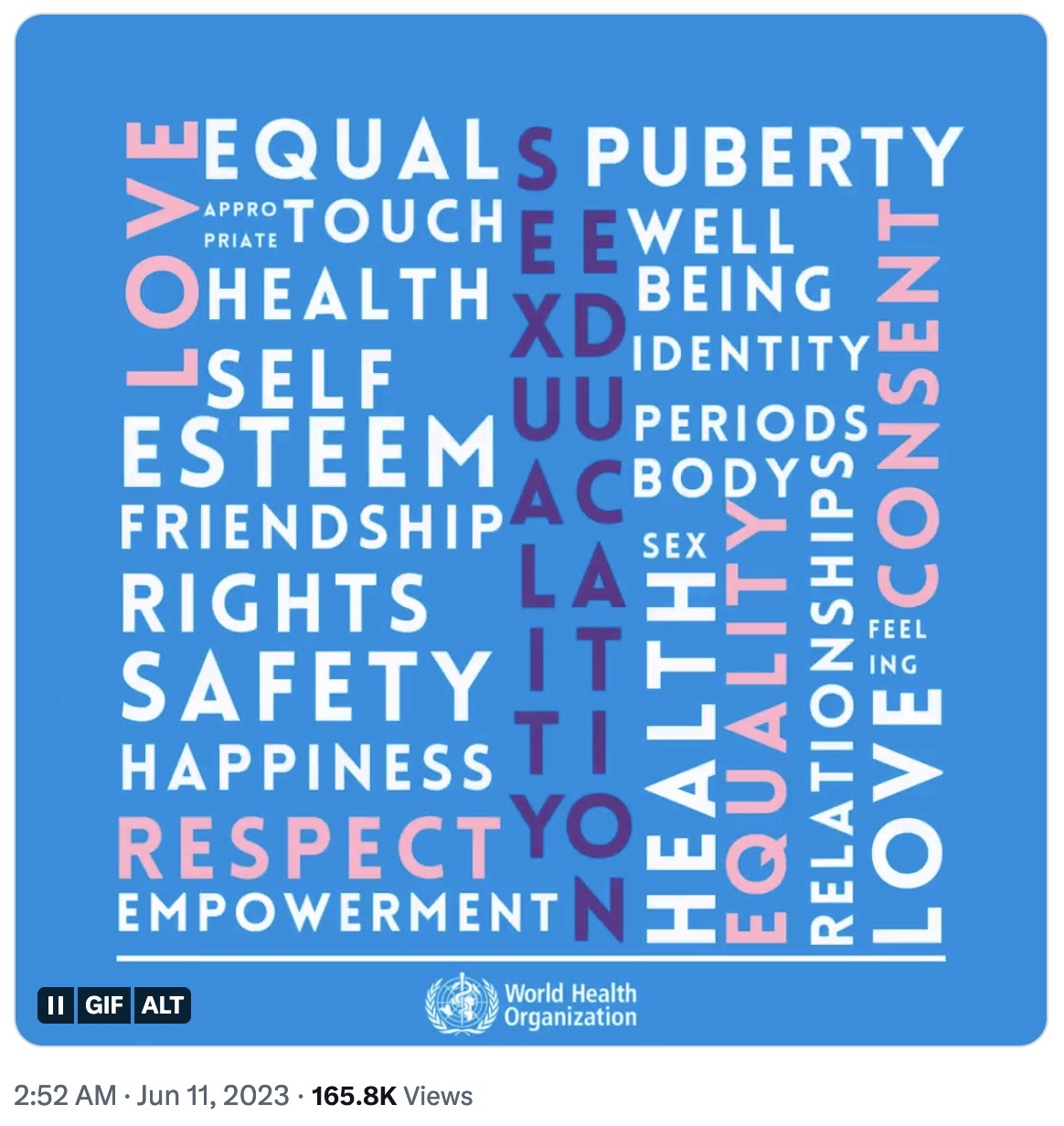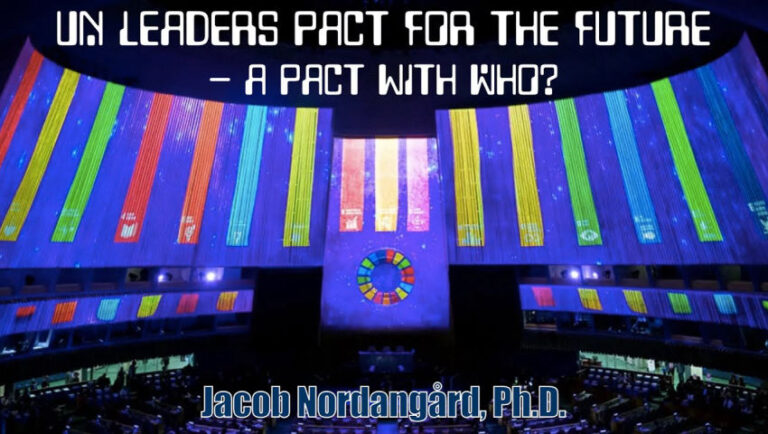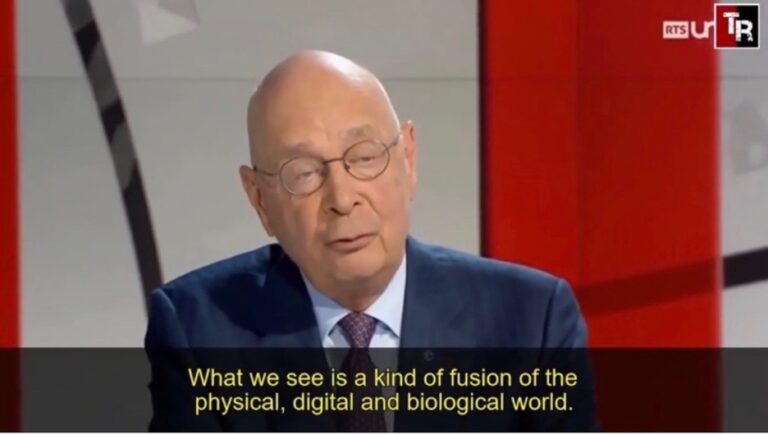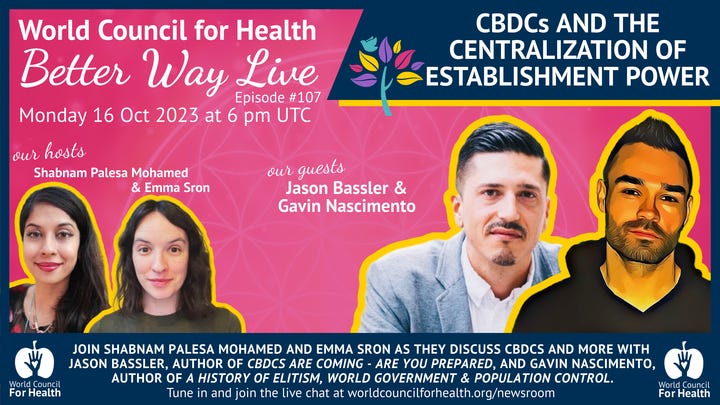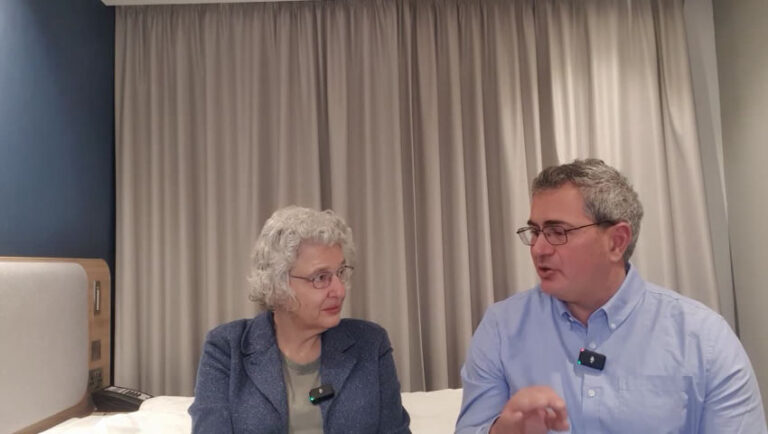Listen to this post:
Global organizations have embraced sex education as a ‘health issue,’ and many now advocate for sex education beginning at age 5, or even younger. [1] It is asserted that children have universal rights at all ages to be taught about sexuality, regardless of what parents believe. [2] [3]
Many question whether young children are legally or emotionally capable of understanding their sexuality and making decisions that will have lifelong consequences. Yet global initiatives in the name of health bypass these important questions entirely. [4]
The World Health Organization describes comprehensive sexuality education this way:
“…gives young people accurate, age-appropriate information about sexuality and their sexual and reproductive health, which is critical for their health and survival.” [5]
However, the WHO’s sexual education goes far beyond physiology, teaching particular, controversial points of view. For example, the WHO advocates for the right to abortion up until the time of delivery of a fetus, as essential healthcare for women. The WHO does not instruct about abstinence. Instead, it
“addresses safer sex, preparing young people – after careful decision-making – for intimate relationships that may include sexual intercourse or other sexual activity. Evidence shows that such an approach is associated with later onset of sexual activity, reduced practice of risky sexual behaviours (which also helps reduce the incidence of sexually transmitted infections), and increased contraception use.” [6]
The moral values associated with sexuality and shaping children’s sexual identities are now claimed by the WHO to fall within its jurisdiction worldwide. This relates also to the relatively new and controversial practice of offering puberty blockers and gender transition surgeries to minor children. [7]
The clear consequence of declaring that children of any age merit autonomy and sexual choice is to implement policies that dislodge parents from the sexual and behavioral counseling of their minor children.
These policies are now embraced by a plethora of national and international entities, including UNESCO (United Nations Educational Scientific, and Cultural Organization) [8], the International Planned Parenthood Foundation [9], and the WEF. [10] The WEF proclaims:
According to the [International Conference on Population and Development] ICPD’s Program of Action, education about sexuality is critical to protect adolescents from STIs [sexually transmitted diseases] and unwanted pregnancies, especially at a very young age, when risks are particularly high for mother and baby.
Enabling young people to make responsible choices about their bodies and sexuality requires delivering comprehensive sex education to all, in a youth-friendly way that respects their agency and autonomy. This means creating safe spaces, where they can access contraceptives or ask questions, without fear that their family or friends will find out. That is the message of the United Nations Population Fund’s new youth strategy, called “My Body, My Life, My World.”
This group of global organizations are intruding into some of our most deeply held values while violating laws regarding the legal age of consent. They have advanced novel legal theories that will remove protections for minor children who engage in sex with adults. A claim made by the International Commission of Jurists is particularly disturbing [11]:
“… sexual conduct involving persons below the domestically prescribed minimum age of consent to sex may be consensual in fact, if not in law.” [The 8 March Principles pg 22, emphasis added]
The jurists couple this with, “Consensual sexual conduct…may not be criminalized in any circumstances.” [pg 22]
Their report recommends upending current laws regarding consent, which hold that children below a certain age do not have the capacity to consent to sexual activity.
International organizations are today instructing educators worldwide to teach children current fashions in sexual behavior regardless of the moral, religious or legal values held by their families.
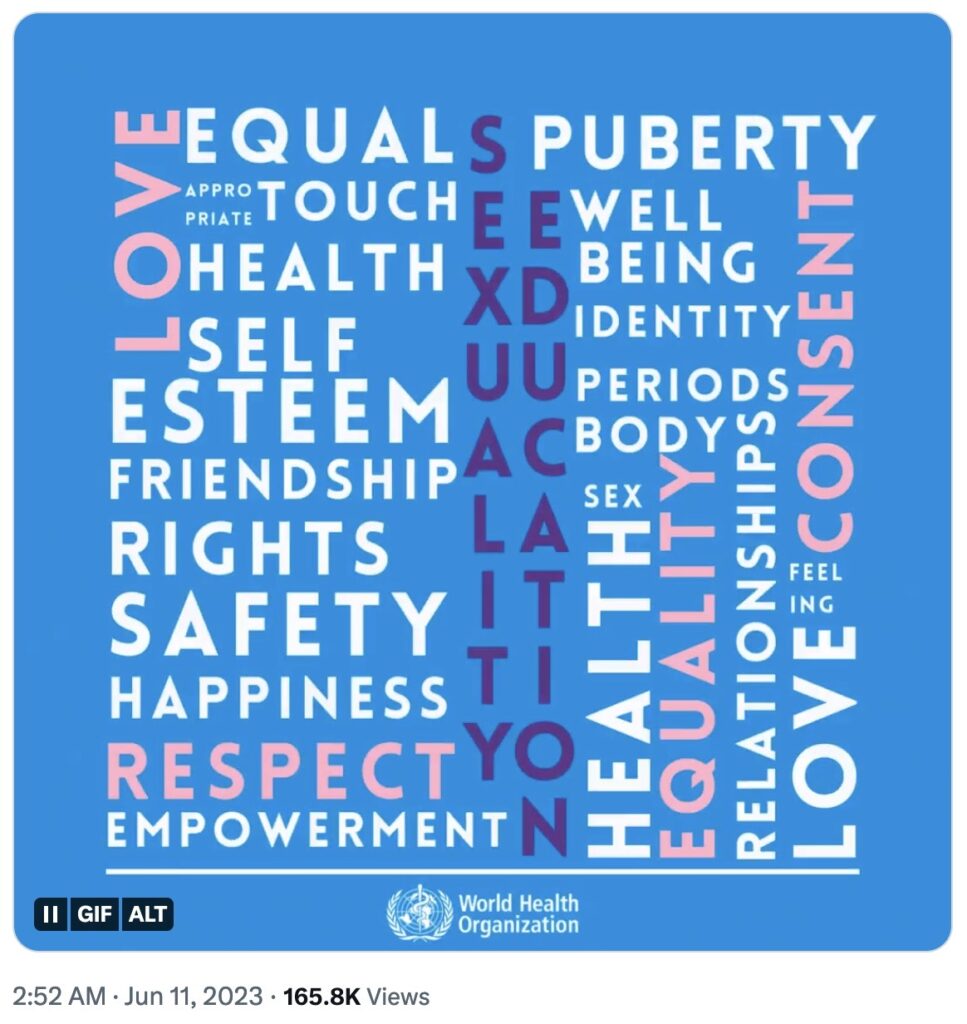
[1] https://www.who.int/news-room/questions-and-answers/item/comprehensive-sexuality-education
[2] https://csetoolkit.unesco.org/toolkit/getting-started/what-comprehensive-sexuality-education
[3] https://www.un.org/esa/socdev/documents/youth/fact-sheets/youth-sexuality-education.pdf#:~:text=UNESCO%20identifies%20the%20primary%20goal%20of%20sexuality%20education,individually%20and%20in%20relationships.%E2%80%9D%20Both%20definitions%20view%20%E2%80%98sexuality%E2%80%99
[4] https://www.reproductiverights.org/sites/default/files/documents/pub_fac_adoles_rtsofchildren.pdf
[5] https://www.who.int/news-room/questions-and-answers/item/comprehensive-sexuality-education
[6] https://www.who.int/news-room/questions-and-answers/item/comprehensive-sexuality-education
[7] https://acpeds.org/transgender-interventions-harm-children
[8] https://www.unesco.org/en/health-education/cse
[9] https://www.ippf.org/our-approach/services/comprehensive-sex-education
[10] https://www.weforum.org/agenda/2019/09/sex-education-vital-to-young-people/
[11] https://icj2.wpenginepowered.com/wp-content/uploads/2023/03/8-March-Principles-Report_final_print-version.pdf

